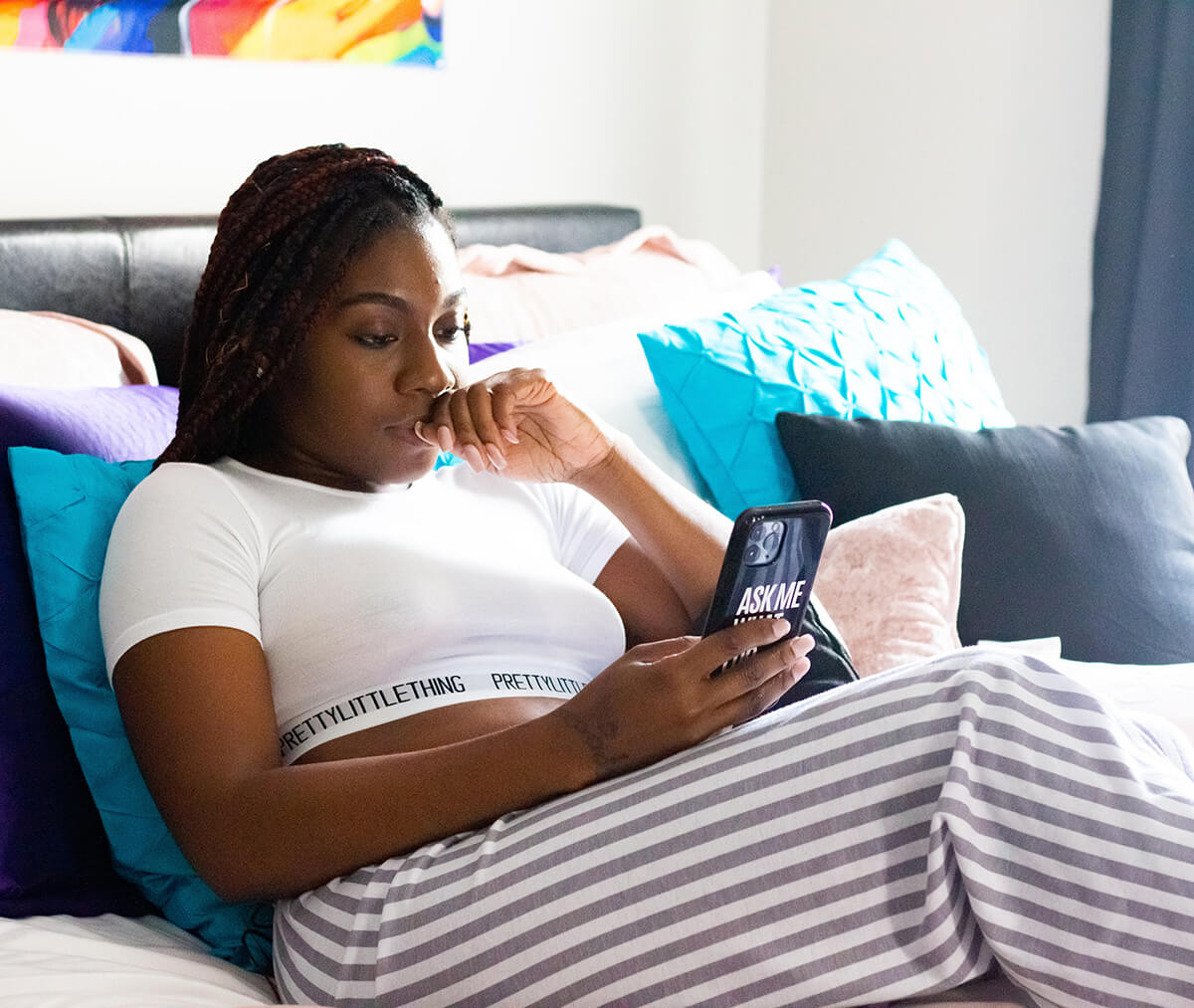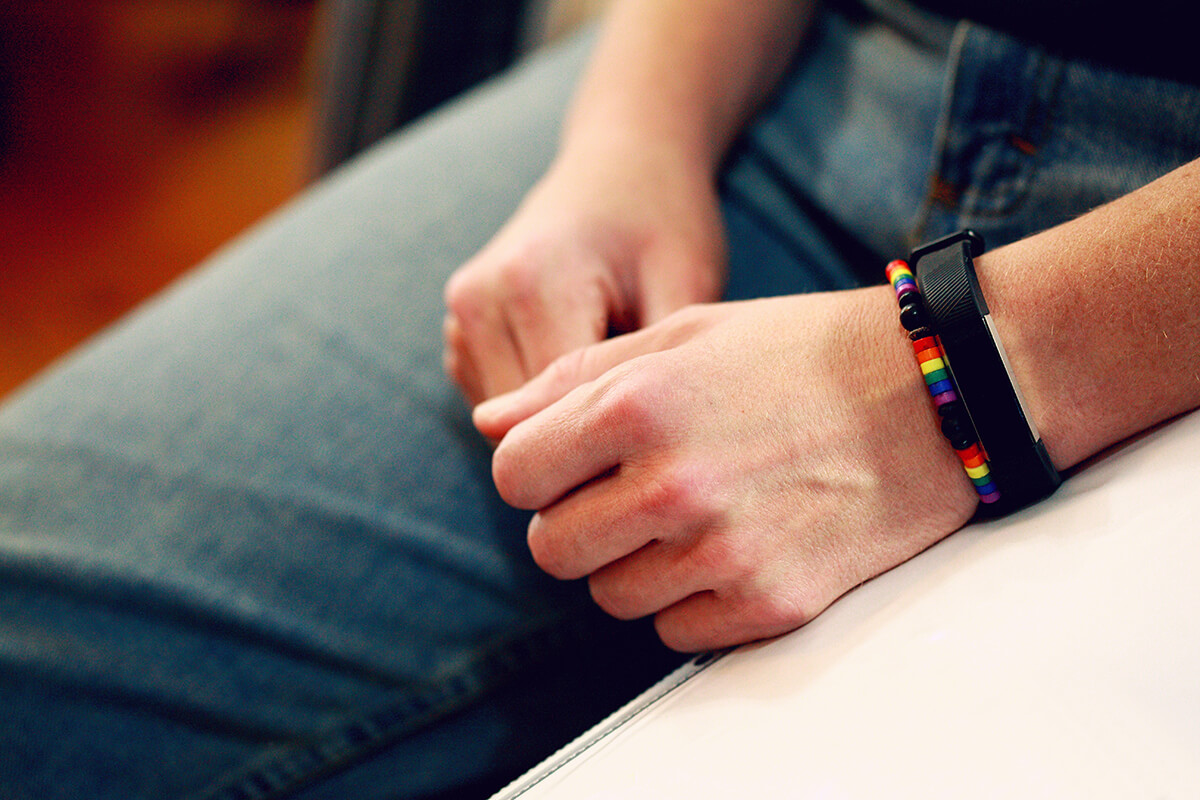 28 May 2021
28 May 2021
BY: admin
Friendships / Relationships
10 Summer Outdoor Activities in and around Denver
5 Strengths Unique to the LGBTQ Community
The Mile High City is a dream for outdoor enthusiasts, and summer is the perfect time to head out and enjoy all the amazing scenery and fresh air. Spending time outside is wonderful for your mental health; in addition to immersing yourself in nature, you can also get some physical exercise that promotes greater mood stability, better memory and promotes positive emotions.
Read on to discover 10 outdoor activities to do in and around Denver, Colorado, this summer.
Go Kayaking
Denver is close to plenty of incredible rivers and breathtaking lakes. Kayaking through the Colorado River is an amazing experience that you’ll never forget. Look for a kayaking tour or class that can get you acquainted with the equipment and process. You might even make some new friends along the way!
Walk City Park’s Mile High Trail
The Mile High Trail loops around City Park for a scenic 3.2-miles trek that’s perfect for passing a sunny afternoon. Along the way, you’ll pass the Denver Zoo, Denver Museum and enjoy a view of the city as well as glimpses of Ferril Lake. Stop by and appreciate the ducks and geese, or bring your pooch along for a relaxing stroll.
Shred It Up at Denver SkatePark
For the extreme sports fans, skateboarding at the Denver Skate Park can be an awesome way to get outside and return to a simpler time when all you had to worry about was when you could skate again with your friends. Don’t forget your helmet! And if you’re not a skater/bmx-er/trick-scooter person, go just to watch! Super fun.
Appreciate Wildlife at Denver Zoo
The Denver Zoo is home to more than 3,000 wild animals across a sprawling 84-acre campus. The nonprofit organization is passionate about educating the public about wildlife conservation through their animal ambassadors. There are always fun events taking place throughout the year, but even a regular day at the Denver Zoo is a treat.
Bike or Hike Your Way Through Red Rocks Park
Red Rocks Park is home to an open-air amphitheater, but it also boasts two hiking trails that are perfect for taking in some of Denver’s best natural scenery. The park is situated between the Great Plains and Rocky Mountains, so you’ll want to bring your camera to snap some amazing scenery shots.
Visit the National Wildlife Refuge
Fishing, wildlife drives and 20 miles of hiking trails await at the National Wildlife Refuge. Take in the amazing preserved habitat of animals such as coyotes, waterfowl, deer, bison and more. You may even spot our national bird, the Bald Eagle!
Take a Peaceful Tour of the Denver Botanic Gardens
Special events such as art exhibitions and workshops are always happening at the Denver Botanic Gardens. Stop by on one of their free days or order tickets online and enjoy the day surrounded by 24-acres of blooming flora and fauna from around the world.
Take a Thrill Ride via Zip Line
Colorado Adventure Center’s Denver zipline tour takes you sailing along the nearby mining town of Idaho Springs. This is a beginner-friendly tour with non-restrictive weight and height limits. The 5,000-foot course will take you over Clear Creek three times. You can end the day by visiting Idaho Springs or sign up for one of the center’s white water rafting courses!
Yoga in the Park
Denver’s parks are perfect for getting in touch with nature and centering your mind and body with a bit of yoga. There are free Yoga in the Park events you can book online. Just bring a mat and you’re good to go!
Go Horseback Riding
Visit 12 Miles Stables in Cherry Creek State Park to participate in a day of horseback riding. Horse rentals, day camps and riding lessons are available for both experienced riders and first-timers. The stables have over 3,300 acres of riding trails available for individuals and parties.
Start Summer Off Right With Therapy
If you’re working on improving your mental health this summer, we’re happy to help. contact our Colorado therapists for more information on our virtual talk therapy sessions today.
 26 May 2021
26 May 2021
BY: admin
Friendships / Relationships
What Gets in the Way of Making a Connection?
5 Strengths Unique to the LGBTQ Community
Social connection is invaluable, but it doesn’t come naturally for everyone. Even the most extroverted, well-adjusted people have to work hard to maintain friendships. But for some, even making the first move can be incredibly difficult and intimidating. Although you may struggle to get to know people or make friends, you aren’t condemned to living life alone.
With the right education, tools and help, you can begin to work through your barriers to making connections and begin finding the right people for you.
3 Reasons You Struggle to Connect With People
There are many reasons you may struggle to connect with others; below are three of the most common reasons and challenges we help clients overcome. If you feel like you can’t connect with anyone, working with a therapist may be able to help you figure out why and start making positive changes.
Social Anxiety
It’s normal to feel nervous meeting new people, but for some, the anxiety that stems from interacting with others is so severe that it prevents them from making friends, dating, speaking up for themselves at work and more. Social anxiety disorder is a treatable condition that you can overcome with time.
Signs of social anxiety disorder include:
- Racing heart, sweaty palms and shakiness when having to interact with others.
- Feelings of intense fear and anxiety when facing a social situation.
- Avoiding social settings, even once you want to go to, because you’re afraid others will reject you or make fun of you.
- Fear that others will notice how anxious you are.
- Judging yourself after a conversation and wondering what you may have said wrong, how you may have looked and ways you might have embarrassed yourself.
If you find that your social anxiety makes it difficult to speak, interact and maintain relationships, therapy can help. The first step is reaching out and talking to a counselor you feel comfortable with. They can help you work through the reasons why you feel so anxious around other people. Then, they’ll help you build confidence by practicing different strategies to manage your anxiety and communicate with others more easily.
You Fear Rejection
One of the reasons you may struggle to connect with others is that you fear they’ll judge you and not like you. In this case, you might consider yourself someone with high standards who always finds a reason to cut ties with someone before they get a chance to know and, in turn, hurt you.
You might also simply avoid people altogether because you’re afraid that they’ll dislike you if they get to know you. Fear of rejection is linked to low self-esteem, something that many people wrestle with. You can combat it by learning to recognize your own strengths and engaging in social situations that you feel comfortable in.
Low-risk social situations are key because they give you a foundation of positive interactions to build from. When you have more confidence from successful encounters, it becomes easier to confront situations with higher risks of rejection like dating and job interviews.
Social Distancing Habits
COVID isolation left millions of people quarantined indoors and fearful of interacting with anyone. Although social distancing and mask mandates are still in effect in many areas, the psychological effects of quarantine have left some people with a deep fear of engaging with others. This can make it hard to push past any anxiety and begin to interact with people. If your mind is worried about getting sick, you can’t enter social situations in a positive manner.
Physical health should never be compromised for connection, so if you’re not able to connect with others in-person due to being high-risk or unvaccinated, there are still options. Virtual clubs and online meetups give you a way to begin rebuilding social skills without putting yourself or members of your household at risk.
Therapy Can Help
Therapy for social anxiety and relationship troubles is effective. Our counselors are always here to help you begin improving your self-esteem and build new skills. Contact us today at Caring Heart Counseling with any questions. If you’re ready to book an appointment, reach out to us and we’ll be happy to arrange a time and date that works best for you.
 03 May 2021
03 May 2021
BY: admin
LGBTQ
Everything to know about LGBTQ+ Counseling
Everything to know about LGBTQ+ Counseling
Denver diversity is flourishing, and our community is becoming more accepting, supportive and celebratory of every gender identity and sexual orientation our members embody. But there is still stigma, stereotypes and difficult challenges that members of the LGBTQ+ community face on a daily basis. These experiences result in a higher prevalence of mental illness and emotional struggle compared to non-LGBTQ+ people. And, these experiences may cause you to wonder if a therapist could possibly understand your perspective.
At Caring Heart Counseling, we offer sensitive, compassionate and educated LGBTQ+ counseling for everyone. LGBTQ+ therapy addresses all of the same problems that individual counseling does, but it provides an added level of insight and understanding to create a safe space for anyone to express themselves and their unique experiences.
In this guide, we’ll help you learn everything you need to know about LGBTQ+ counseling. We’ll cover how it works, what to expect and topics we can help you address in your life. At Caring Heart Counseling, you always have an ally who wants to listen, affirm and uplift you no matter who you are or where you are on your journey.
LGBTQ+ Counseling Helps People at Every Stage of Self-Discovery
One of the biggest struggles people face when exploring their gender and sexuality is worrying whether or not they’re “enough” for a particular label. Do you have to date men and women on rotation to be a “real” bisexual? What does it mean to be non-binary, and how do you know when it’s the right time to transition to a different pronoun? Does being gay mean you can’t have feelings for someone who is transgender? All of these questions and more can be addressed through counseling. We are not here to tell you what’s right or wrong, but to help you discover yourself more and build the confidence you need to lead life as the most authentic version of yourself.
Going to counseling can be so liberating as an LGBTQ+ person because you finally have a place to express all of your thoughts and feelings in a judgement-free zone. Your therapist isn’t going to force you into any label. Instead, we’re focused on helping you accept who you are in the present moment and find love for that individual. It’s the underlying being who matters. Whether you believe in souls or spirits or just consciousness, therapy helps you connect with the “you” underneath it all and become more confident in that being as you continue to explore your identity.
This can be an especially cathartic experience for people who are contemplating coming out later in life or those wrestling with trauma, needing to heal from the past before they can truly move forward into a brighter future.
It Isn’t Just for Adults
Adolescence is when most people in the LGBTQ+ community begin to confront feelings about their gender identity and sexuality. This is a natural time to begin considering where you fit in the world, who you want to become, and how you want to connect with others. For parents, having a teen come out as gay, lesbian, bisexual, queer, transgender or non-binary can be a confusing time. You may lack the words to give them the love and support you want to express; you might struggle to help them overcome their problems and insecurities.
By working with an LGBTQ-informed therapist, parents and teenagers alike can learn to navigate identity and sexuality. If you’re going to support your teen as they transition, then family counseling can also help everyone be as understanding and supportive as possible.
Many teens who identify as LBGTQ+ also struggle with mental illness, namely depression and anxiety. Therapy can help them learn to manage their symptoms and resolve them as they become more secure about themselves and who they are.
It Offers Unique Treatment for LGBTQ+ Substance Abuse
There is a higher prevalence of substance abuse in the LGBTQ+ community than any other group worldwide. Finding ways to cope with stigma, abuse and discrimination can come in many forms, and unfortunately, many of them tend to be self-destructive and harmful. In counseling, we also handle serious topics like substance abuse, self-harm and suicidal thoughts.
Beyond treating just the symptoms, we look at the underlying experiences that have influenced your mental health so far. Understanding how substance abuse affects the LGBTQ+ community and the role it plays in your life so far. In addition to substance abuse counseling and talk therapy, your therapist can also help you explore various treatment options and play an active role in your recovery.

Therapy Can Be a Safe Space for Unsupported Teens
Self-help resources allow teens to tackle many of the issues they face on their own, but they still need a supportive environment to thrive. Unfortunately, not everyone is accepting of LGBTQ+ identities. While this is definitely changing, many traditional communities and even individual families are still wrought with homophobia and transphobia. This can be devastating as someone who feels completely rejected by their parents, siblings or close relatives.
Rather than simply having to “suck it up” and deal with all the pain and heartache involved with being discriminated against, therapy can help LGBTQ teens find resources they need while also providing identity affirmation. When you’re a young person who has taken the courage to confide in your loved ones, it is heartbreaking to have your identity questioned, invalidated or flat-out rejected. Therapy can be a place to heal from that, find acceptance and shift your focus toward a brighter future filled with people who will love you for exactly who you are.
Parents Can Educate Themselves Without Fear
When your child comes out as trans or non-binary, it’s common to panic and feel at a loss for words. You may fear that asking them questions will make them feel unsupported or even offended. It’s also natural to wrestle with a sense of grief and loss over the future you envisioned for your child as you knew them. Sharing these thoughts can cause guilt, so you may be tempted to repress them. But you cannot fully support your transgender or non-binary child without first fully coming to terms with who they are.
LGBTQ+ counseling allows you to express everything you’re feeling in an open space free of judgement. As therapists, we help both individuals and their loved ones confront some of the most difficult thoughts and feelings they carry around with them on a daily basis. At the core of Caring Heart Counseling’s LGBTQ+ counseling, we have a deep sense of love and acceptance for everyone. We know that it isn’t always easy to understand or even accept someone’s identity. Most of the time, you just need space to process and skills to communicate better.
In addition to taking care of your own mental health, our therapy for parents of LGBTQ+ children provides guidance and support for major topics such as healthcare, gender reassignment and coming out to family.
Counseling Can Make You a Better Ally
If you want to support your LGBTQ friends, there are many ways you can do so, but there are also some pitfalls to avoid. Sometimes, people with the best intentions still act in a way that is considered insensitive or misplaced to their loved ones. This doesn’t have anything to do with your care or compassion; the LGBTQ experience is unique, dynamic and extremely individual. Although your friends may have commonalities with people in the community, they are still their own beings whose gender identity and sexual orientation have developed on their own.
To be the best ally possible, speaking with an educated counselor can help. You can ask questions openly without worrying about offending your friends. You can also gain valuable insight into the common mental health struggles that affect people in the LGBTQ community, which might affect your friends but are not often shared. A therapist can offer valuable tips on how to support someone with a mental illness and even offer important tips and warning signs to watch out for if you’re ever worried about someone.
It Can Help You Break Free From Perfectionism
Perfectionism in the LGBTQ+ community is rampant, and it can lead to serious problems with chronic stress, depression and anxiety. Underlying perfectionism is a fear of not being good enough or feeling like you constantly have to prove your worth to others. It’s never enough to just be “good enough; you always have to be the best. Standards that constantly reach infinitely higher leave you feeling exhausted, frustrated and unhappy. The perfectionist mindset is destructive and, ultimately, unfair to you.
As a human being, you’re allowed to make mistakes, change your opinions and grow. You’re allowed to be less than perfect. In therapy, we can address reasons why you may be a perfectionist and how perfectionism is affecting your life. Building greater self-love, acceptance and forgiveness can ultimately help you be kinder to yourself and everyone around you.
You Can Heal From Depression
People in the LGBTQ+ community are 4.5 times more likely to suffer from depression. Factors such as lack of support, discrimination, trauma and general minority stress all contribute to depression. What starts off as fear can morph into a feeling of hopelessness that clouds everything in your life.
Depression is a unique experience to everyone, and good therapy will always place your experience as an individual over your place in any community. But good therapy also recognizes that the experiences of being LGBTQ+ are unique in and of themselves, and you deserve a counselor who understands these nuances.
Together, you and a licensed counselor can talk through your feelings, explore your thoughts and find real ways to get relief from depression. It’s about so much more than simply taking medication or getting things off your chest. You need a supportive environment that helps you build upon your strengths and find sources of hope and purpose in the world.
Gender and Sexuality Anxiety Can Be Treated
LGBTQ+ people experience some form of anxiety or depression at a rate of 1.5 to 2.5 more often than the heterosexual, cis-gender population. A lack of understanding from others can often cause people to struggle in isolation because they can’t tolerate constantly having to explain themselves or validate their experiences to other people. LGBTQ+ counseling alleviates that burden and gives you freedom to express everything without having to worry about being judged or invalidated.
When you’re a child, you took in many messages that subconsciously told you the “right” way to be a man or woman. You were likely taught that there are only two genders, and the gender you have coincides with your biological sex. For decades, “gay” was used as an insult, and people’s sexuality were often the brunt of cheap drama and comedy on television. To a developing child, this can lead to harmful mental frameworks that ultimately affect how you see yourself when you grow up.
Identifying as LGBTQ+ is different to everyone, but not knowing where you exactly fit in can lead to anxiety and depression. Mental and body dysphoria create lasting psychological impacts that can make even simple acts like getting dressed feel hard and burdensome. Fear of discrimination, judgement and a general lack of support can all cause someone to struggle with their mental health. Informed counseling for LGBTQ+ people gives you the right level of care you need to start healing. Your identity itself is never the problem; it’s the perspective with which you see it. At Caring Heart Counseling, we want every person to build an image of themselves that’s rooted in acceptance and love, not perfection and expectation.
You Can Gain a Deeper Appreciation for Who You Are
The LGBTQ+ community is extremely diverse and incredibly beautiful. You are never alone. Your feelings, experiences and difficulties are all valid and, more often than not, shared by others leading similar lives. If you struggle to accept your gender, sexuality or identity, counseling can help you discover the beauty in being you. There are so many strengths in the LGBTQ community, and we are happy to help you discover them.
In addition to recognizing community-based strengths, counseling also helps you learn to recognize and appreciate your own. You bring so much to the table, and therapy is a valuable tool that can help you realize just how much you have to offer.
Denver LGBTQ Counseling for Everyone
LGBTQ+ counseling at Caring Heart is as individual as each client. We are always evolving and educating ourselves to provide the greatest level of care and understanding to everyone we work with. If you’d like to learn more or schedule a face-to-face or virtual therapy session with one of our counselors, please contact us today.

